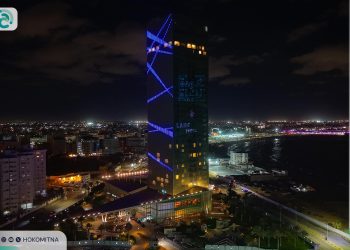By Tom Westcott and Seraj Essul.
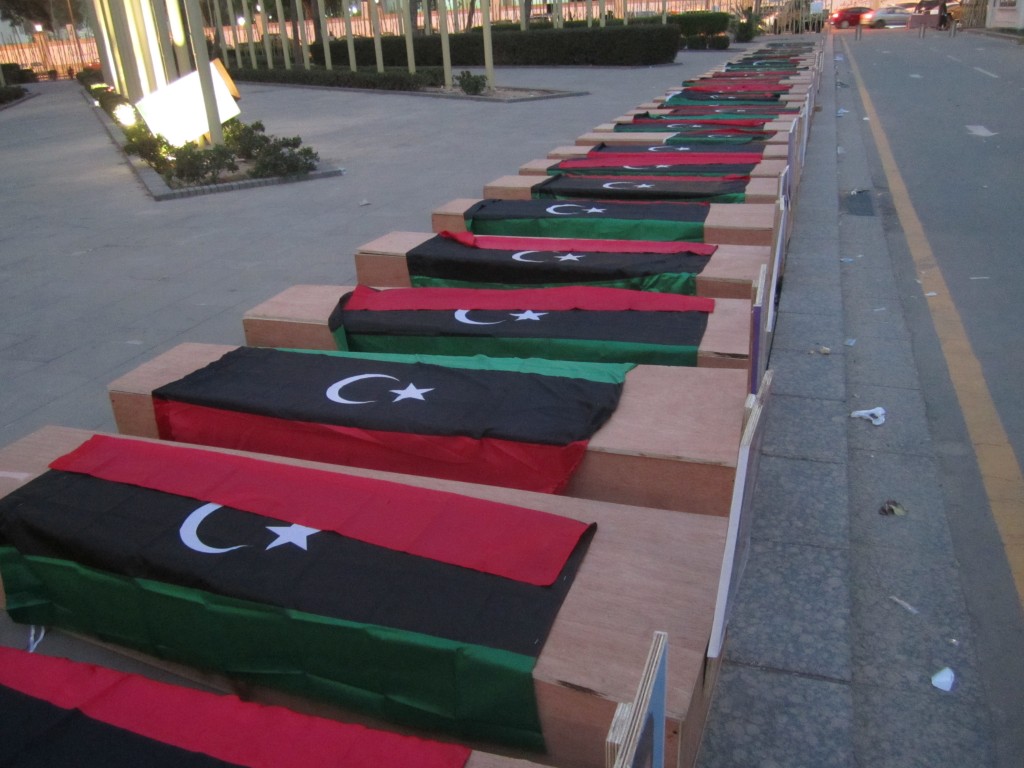
Tripoli, 30 April 2013:
Over a thousand demonstrators arrived this afternoon outside the Congress conference hall with . . .[restrict]coffins, in a symbolic gesture designed to persuade Congress to pass the Political Isolation Law unamended. The law would result in thousands of Qaddafi-regime officials barred from holding office.
There are numerous amendments to the law which is to be presented to Congress for its approval on Sunday.
The coffins, some 265 in all, had set out from Suq Al-Juma where they had been made, and each was intended to represent someone who died for the revolution. They were taken by foot first to Martyr’s Square and then to Congress. Not all made it. According to the organisers 40 were laid in front to the building, each one representing a year of Qaddafi’s rule. The Libya Herald counted 37.
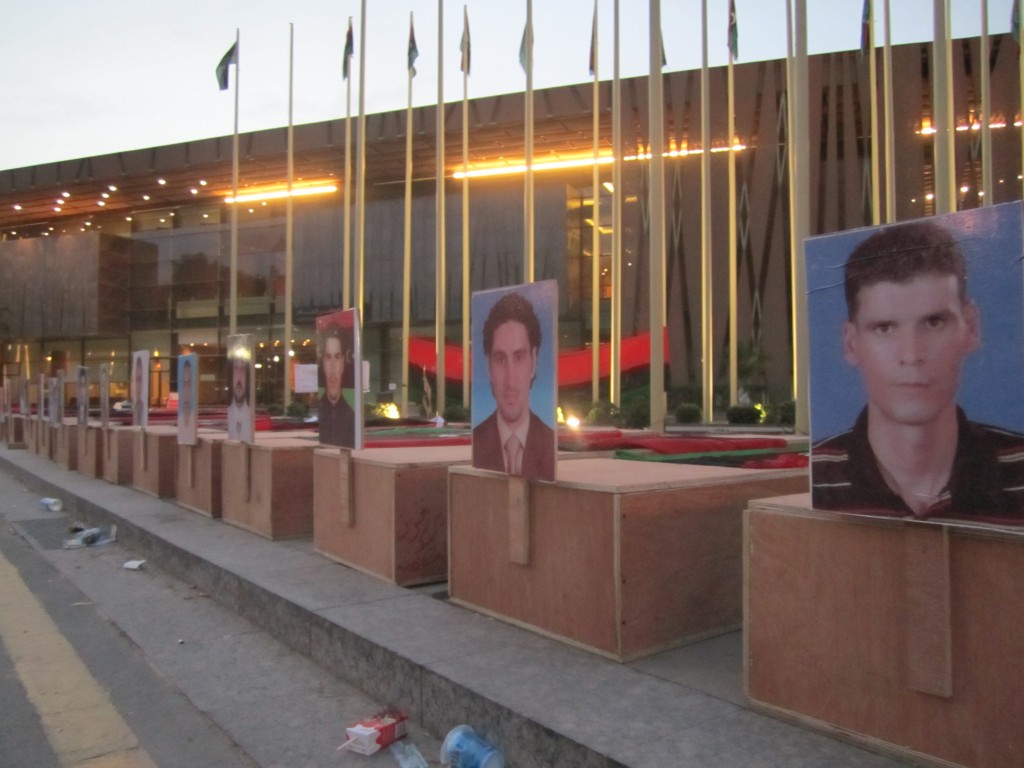
Mustafa Saadi, an organiser of the march, said that the aim was to make it clear to the government and GNC that there were too many delays in approving the law and it was not acceptable.
He and others at the demonstration made great play on the fact that it was a peaceful event and that no one was carrying weapons – although reporters saw one protester surreptitiously hand a gun to another. Certainly there were no armoured vehicles.
Security, though, was visibly absent. A lone security guard watched from afar as protestors sprayed the walls with graffiti.
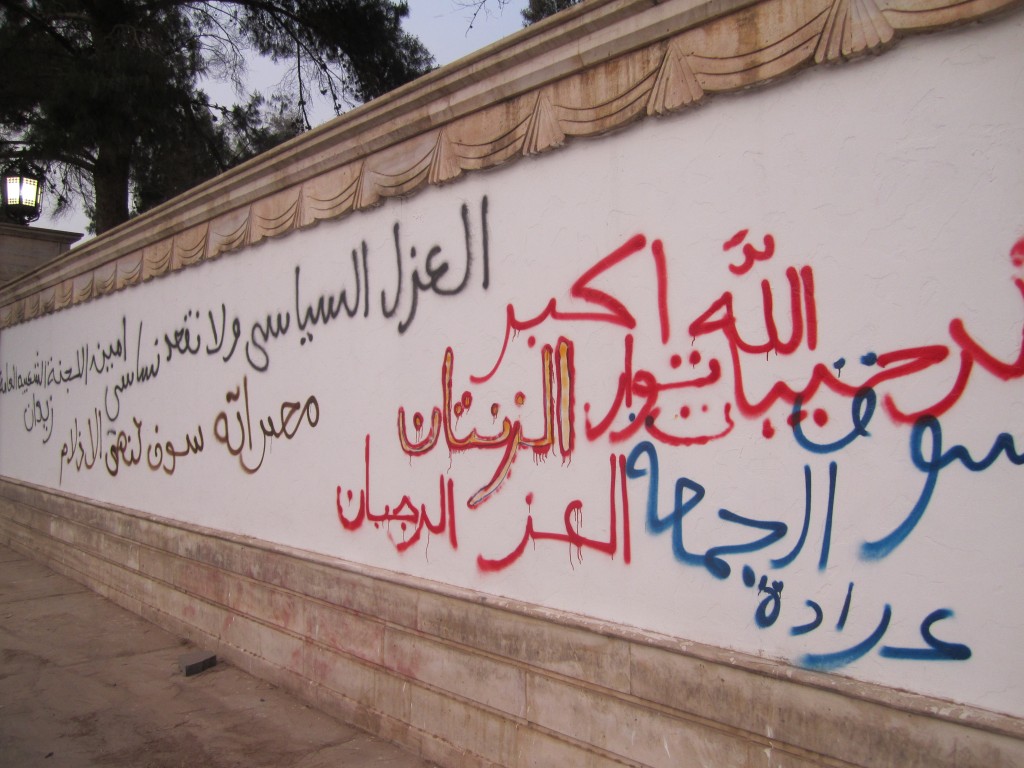
Most of those at the demonstration were said to be supporters of the Muslim Brotherhood or Salafists although this could not be confirmed. Numbers reduced in the early evening, and by the time of Maghreb prayers, were down to about 300.
“We are taking our legitimacy from the blood of the martyrs and the revolution”, said one enthusiastic protestor. A number of others, though, threatened to take the law into their own hands if the Isolation Law is not passed or, if passed, were amended to make it meaningless. In that case, they warned, they would set up their own integrity commission and enforce its decisions.
They blamed the government for the delay, despite the fact that the law is Congress’ responsibility.
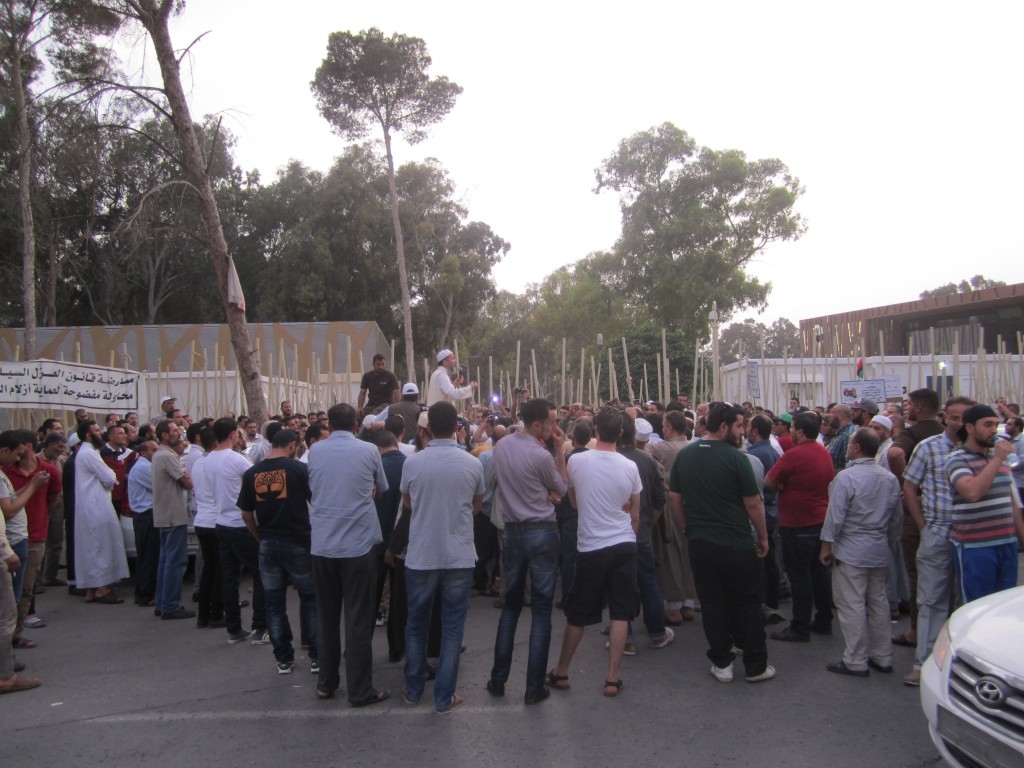
“We have been peaceably protesting since December – and no one is listening to us. They (the authorities) are delaying the law. Every week there are more delays,” said another protestor.
He insisted that there had been political isolation laws in all countries that had had revolutions. “Look at France, look at Iraq”, he said.
“We are very confident the law will be passed and we are just doing the same thing as other people who have been through regime change”, said another.
All were adamant that there was no other way forward Libya other than the Political Isolation Law.
With input by Farah Waleed [/restrict]







